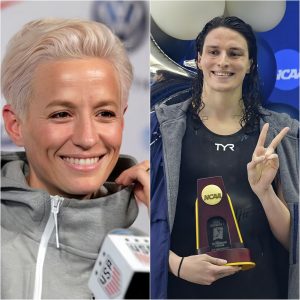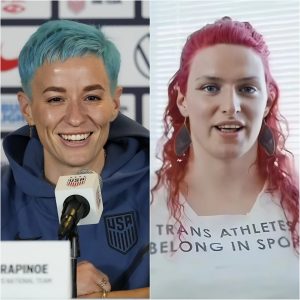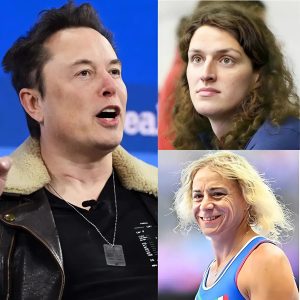The debate over gender identity in sports took a fiery turn recently when famed Harry Potter author J.K. Rowling publicly criticized transgender Paralympic sprinter Valentina Petrillo, accusing her of being a cheater. Known for her controversial views on transgender issues, Rowling’s remarks have once again ignited a fierce cultural and ethical debate, leaving people questioning where the line should be drawn between inclusion and fairness.

Rowling’s comments came after Petrillo, a transgender woman who competed in the men’s category before transitioning, achieved notable success in women’s para-athletics. Petrillo’s participation has been under scrutiny, with critics arguing that she has an unfair advantage due to the physical traits retained from male puberty. Proponents, however, emphasize the importance of inclusivity in sports, celebrating Petrillo’s journey as a triumph of identity and perseverance.
Rowling took to social media, as she often does, to voice her concerns. “It is simply unfair for women athletes who have trained their entire lives to compete on a level playing field, only to find it tilted,” she wrote in a series of posts. She further claimed that Petrillo’s victories undermine the integrity of women’s sports, where biology often plays a critical role in performance. The use of the word “cheater” caused an immediate uproar, with supporters of transgender athletes accusing Rowling of perpetuating transphobia.

Rowling’s critics argue that her views are reductive, failing to consider the rigorous medical and hormonal regulations imposed on transgender athletes. These rules, set by international governing bodies, ensure that transgender women’s testosterone levels are brought in line with those of cisgender female athletes. In Petrillo’s case, these guidelines have reportedly been followed to the letter. Despite this, opponents like Rowling claim that the physiological advantages gained during male puberty—such as greater bone density and muscle mass—persist and give an edge that regulations cannot fully negate.
On the other hand, Petrillo’s supporters defend her as a trailblazer who embodies the Paralympic spirit. Born visually impaired, Petrillo has overcome countless hurdles to compete at the highest level, transitioning in 2019 to live authentically. For her, participation is about more than just medals—it’s about breaking barriers and proving that individuals shouldn’t have to choose between their identity and their passion.
The debate surrounding Petrillo extends beyond sports into a broader conversation about gender rights and societal acceptance. To some, she represents progress; to others, she symbolizes the erosion of what they see as fair competition. The controversy highlights a deeper cultural divide, with traditionalists like Rowling arguing that allowing transgender women in female sports fundamentally alters the nature of the competition.
Rowling’s intervention has not been without consequence. Her stance has reignited the “cancel culture” debate, with some calling for boycotts of her work, including the highly successful Wizarding World franchise. Others, however, see her as a defender of women’s rights, standing firm in the face of what they perceive as societal overreach. The divisiveness of the issue is reflective of broader tensions in society, where the rights of one group are often seen as coming at the expense of another.
For Valentina Petrillo, the scrutiny is undoubtedly personal. While critics debate her presence in sports, she continues to train, compete, and advocate for transgender athletes, often in the face of immense hostility. Her story, whether viewed as inspiring or controversial, underscores the complexities of inclusion in competitive sports.
This moment in history is not just about Rowling or Petrillo; it’s about the world grappling with how to redefine fairness in an era where identity is fluid and boundaries are being questioned. As debates rage on, one thing is certain: the conversation about inclusion and fairness in sports will not end here.




